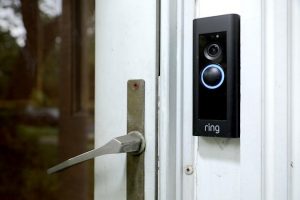Conferences are excellent opportunities to network with like minded people in your industry, and they can be important sales tools as well. Even independent conferences serve the purpose of gathering like minded individuals in a space where they can share their ideas.
Planning a conference is a huge undertaking, and not one that is for the masses. It takes a special personality to be able to coordinate the speakers, presenters and event staff needed to make the conference a success. You’re always going to run into scheduling hitches and day-of hiccups, but these tips will help you smooth the process and plan a killer conference.
Construct a Plan of Action
Start your planning by building a theme for your conference. You might want to teach your guests a new technique, or discover speakers’ thoughts on trends in your industry. Structure your event around that, using a app to provide a road map for your conference activities. You can let your guests sign into panels and sessions without waiting in line, and apps help members coordinate, too. Apps even track attendance levels, so you can rearrange your high impact panels to accommodate more guests.
Think of this process like the RSVP for a party. You need to know what volume of people you’re expecting, and they want to know what you have in store. If you can provide them with an itinerary when you launch the even page, you’ll garner more interest.
Find Great Speakers Now
An event is only as good as the speakers you’ve found to participate. They can add genuine value to the guests at your event, but you need to balance your own budget with their needs. A guest speaker can be an expensive endeavor if you don’t want someone hawking a product or service.
Good speakers sometimes volunteer for the chance to spread their messaging, but volunteer or not they tend to get snatched up quickly by other venues. Do your research and have a list of individuals you would like to target for your events, and concentrate on booking them as soon as possible.
When you reach out to speakers, try Twitter before email. Those personalities are highly active on Twitter, and you may get a more immediate response if you use short form messaging. Email should be your next resort, followed by private messages on Facebook. This is also a good time to leverage whatever professional network you may have built up in LinkedIn. Ask your contacts who they know that would be willing to speak, and look for key introductions to influential people.
Partner with Local Businesses
A business partner offers to give you money in exchange for booth space, which helps you plan a better event. Consider finding multiple business partners and selling them on the benefits of your event. You’ll need to provide significant traffic to the venue to make this worth a business’ efforts, but the pay off for face time with potential customers is often worth the modest cost. Plus, your venue may perform well and form the basis for a lifelong relationship.
Pick a Venue that Suits the Occasion
When you plan your first event, you’re not going to need Madison Square Garden as your exhibition hall. Your event hall should be a venue that is large enough to accommodate a few hundred people, with several tables and space to move around. Separate rooms would be beneficial, but are not required. You can set up chairs before a stage and let audience members mingle between the speaker and the floor. Just make sure you use a separator to break up some of the sound, otherwise it will be difficult to hear your presenters.
If possible, consider streaming the event on social media. The extra page views help increase awareness for your event, which brings you one step closer to becoming an annual occurrence.
(257)
Report Post






